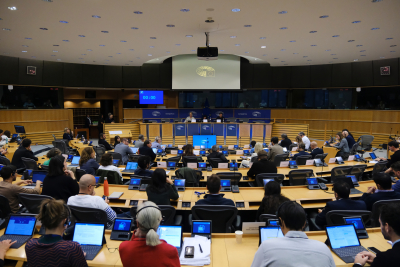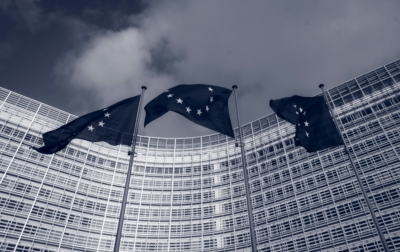Europe is going through its greatest crisis since World War II, with the Coronavirus pandemic currently affecting every EU State. Images of Italian hospitals with thousands of patients to treat while on the verge of collapse have shocked the world.
As number of cases and death toll rise by the hour, it becomes clear that no European government was prepared for this. From hospitals not having enough beds in intensive care units, to a shortage of ventilators. From the lack of testing facilities, to the shortage of basic safety equipment. And as lockdowns spread across the continent, societies can expect huge economic costs, as millions of workers lose their jobs and businesses go bankrupt.
To ease the pain, governments have announced measures against the economic impact of COVID-19. Belgium adopted a scheme of temporary unemployment, Denmark adopted a temporary compensation scheme for the self-employed and freelancers, Italy decided to postpone and defer all tax payments, Spain approved funds of €300 million to ensure the provision of assistance to dependent persons.
But how could this happen in some of the wealthiest countries in the industrialised world? Countries that ostensibly have some of the best healthcare systems in the world.
What most European countries have in common is that over the last ten years they have reduced their corporate income tax rates, while cutting public health funding. Moreover, research demonstrates that almost 40% of multinationals’ profits are shifted to tax havens – and therefore go untaxed. Zucman’s research clearly shows the percentages of corporate tax revenues lost per country: 19% in the case of Italy, 24% for France, 28% for Germany. This is the result of clear political choices.
Investigations into large corporations’ tax affairs are notoriously difficult to carry out due to the lack of publicly available information and rely heavily on leaking. At Transparency International EU, we have long campaigned for increased transparency in corporate tax issues. One simple measure the EU could adopt is mandatory legislation on public country-by-country reporting by large multinationals. This would mean citizens, journalists, and civil society could see how much tax companies pay, and where. It would help to ensure that taxes are fairly paid in the countries where they are due (where the economic activity takes place) and provide revenue for critical public services like healthcare.
Despite this enormous loss of public revenue, certain Member States consistently oppose this crucial legislation and, consequently, make it easier for big companies to hide what they pay in tax. After an 18-month stalemate in the EU Council, a number of Member States blocked this measure once again in November 2019. Reports name these countries as Austria, Croatia, Cyprus, Czech Republic, Estonia, Germany, Hungary, Ireland, Latvia, Luxembourg, Malta, Slovenia and Sweden.
Last week, a number of EU leaders sent a letter to the President of the European Council, Charles Michel, demanding a coordinated European response to the current healthcare crisis. While in this case EU leaders call for a joint European response, when it comes to the collection of taxes that could fund their ailing healthcare systems they still demand strict national sovereignty.
Interestingly, Ireland’s Prime Minister, Leo Varadkar, is one of the signatories to the letter. In 2018, Apple paid €13 billion to Ireland, after the European Commission imposed the largest corporate tax fine in history on the US tech giant for having received illegal state aid. Paradoxically, the Irish State refused to accept it and is appealing the Commission’s decision before the European Court of Justice. Perhaps accepting that money could help fund the country’s health system for the benefit of its citizens.
Everywhere, Coronavirus is upending established political norms and highlighting the necessity of well-funded public services. Perhaps this crisis can prompt EU states to rethink their position on tax reporting, too.




